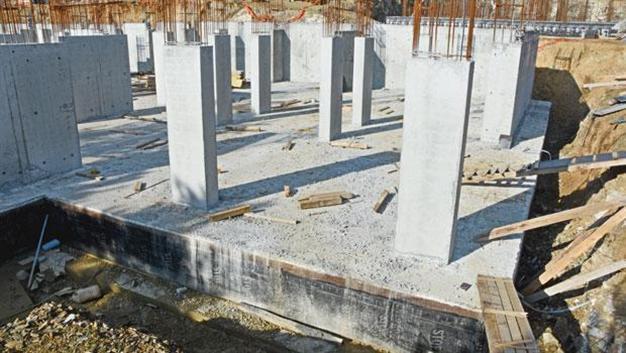Turkish university starts constructing ‘landmark mosque’ amid Buddhist temple demands
Esra Ülkar – ISTANBUL

Istanbul Technical University (İTÜ) has begun construction on a “landmark mosque” in an area previously designated for housing facilities, in a controversial move that previously sparked satirical student protests demanding an on-campus Buddhist temple.
“After the construction of our housing facilities began, it was decided that a mosque would be built in the same region due to the suitabilitiy of the area,” the university announced.
“The region was initially designated for housing. However, after considering some criteria – most importantly the dense population in that area – it was decided to build the İTÜ mosque in the same region,” the statement added.
The area designated for the mosque was a green space until its trees were chopped down by the administration because they were “unhealthy.” The land was then earmarked for housing facilities for university academics.
However, İTÜ Rector Mehmet Karaca announced in March that a “landmark mosque” would be built on campus due to “huge demand,” referring to a change.org petition where 185,000 people demanded a mosque on İTÜ’s property.
The announcement encouraged opposing university students to launch their own online campaign, demanding that a Buddhist temple be built at İTÜ.
While 25,000 people became signatories to the petition, the students emphasized that their action target “religious populism” after a series of mosques were built on campuses across the country even as many education institutions lack scientific instruments and research funds.
Mosque constructions inside universities quickened after a 2014 statement by Religious Affairs Directorate (Diyanet) head Mehmet Görmez in which he announced that 50 new mosques would be opened on campuses by the end of 2015.
“There are around 20 million young people in Turkey. We want to reach this young population. We attach importance to mosques on university campuses, where religious clerics will communicate with young people.
We want the youth to have spiritual development and have access to mosques,” Görmez told the agency.
“Temples and universities cannot be separate,” Görmez said at a separate event on April 19, 2014.
So far, the Justice and Development Party (AKP) government, which is accused of pursuing a Sunni-driven agenda by the opposition, has not publicized any plans to fulfill the needs of students who belong to other sects and religions in Turkey.
 Istanbul Technical University (İTÜ) has begun construction on a “landmark mosque” in an area previously designated for housing facilities, in a controversial move that previously sparked satirical student protests demanding an on-campus Buddhist temple.
Istanbul Technical University (İTÜ) has begun construction on a “landmark mosque” in an area previously designated for housing facilities, in a controversial move that previously sparked satirical student protests demanding an on-campus Buddhist temple.